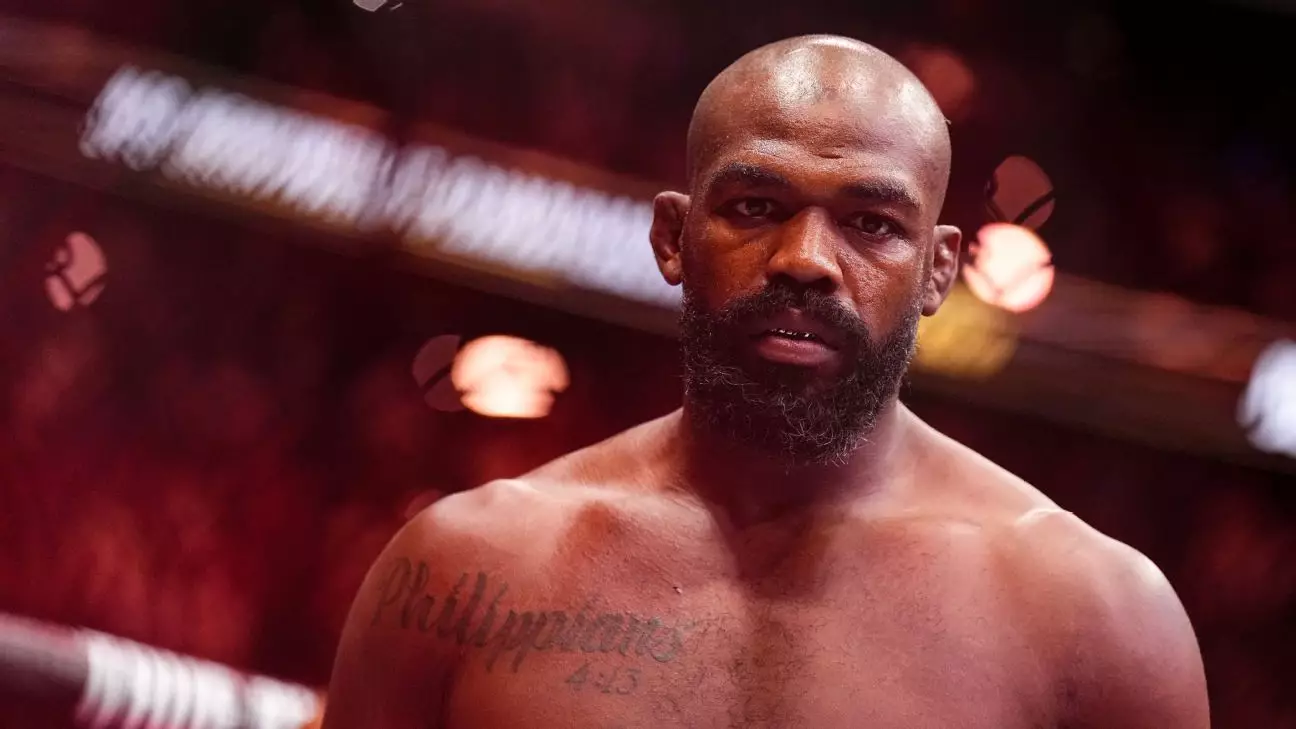When one delves into the intricate fabric of mixed martial arts (MMA), it’s difficult to overlook the polarizing figure of Jon Jones. The recent announcement of his retirement by UFC CEO Dana White marked yet another twist in the tumultuous career of a man many deem the greatest fighter of all time. However, the resignation wasn’t accompanied by the expected accolades and nostalgia; rather, it highlighted a trend much more sobering and revealing about Jones’ character—his unyielding self-centeredness. Few fighters have wielded selfishness as effectively as Jones, yet this same trait has cast a long shadow over his legacy.
Jones’ approach to the sport has always been unconventional, paving the way for incredible achievements but also drama-laden controversies. His decision to retire alongside White’s almost palpable disappointment at a news conference reflects deep-seated frustrations. Was his exit planned, or simply another instance of Jones deciding to act only on his terms? The enigma remains, and as fans and analysts grapple with this question, we’re left to consider the implications of a career punctuated by self-serving decisions.
The Weight of Expectations and Missed Opportunities
The MMA world had anticipated a monumental showdown: Jon Jones versus Tom Aspinall for the heavyweight title. However, Jones’ reluctance to engage with Aspinall—the newly crowned champion—was almost theatrical in its manipulation of the narrative. Instead, he chose to flirt with a fight against 42-year-old Stipe Miocic, an aging legend who hardly fits the mold of an electric matchup. This decision, cloaked in the guise of legacy building, struck many as a self-indulgent move, one that prioritized Jones’ desire for a marquee fight over the actual spirit of competition.
The ramifications of this choice were not just personal. An entire fight card hinged on Jones’ decision-making. Aspirations for an exciting heavyweight division clash were extinguished due to what can only be interpreted as a lack of regard for the sport’s sustained growth. White’s remarks confirm the gravity of this disappointment, referencing how the fight was a done deal before Jones’ latest retreat into retirement.
Jones’ history is riddled with similarly head-scratching choices. His decision to abandon a fight with Chael Sonnen, resulting in the cancellation of UFC 151, painted him as someone whose self-interest outweighed the collective ambitions of not only his fellow fighters but also the sport itself. For every step forward, it feels as if Jones takes two steps back, perpetuating this cycle of selfishness that does little to endear him to fans or fellow fighters.
The Duality of Greatness and Ego
Yet, it’s also essential to recognize that Jones’ selfishness is intimately intertwined with his greatness. His unparalleled skill set, strategic mind, and undeniable talent have earned him victories over some of the sport’s biggest names. However, the latter part of his career has been marred by inactivity, strict avoidance of high-risk bouts, and a seeming unwillingness to engage with rising challengers. This self-preservation raises questions about authenticity; can one truly be considered great while so meticulously curating every opportunity?
The fact that he has navigated through a myriad of legal tribulations—often emerging without significant repercussions—speaks volumes about his unique position within the UFC. He remains perhaps the most protected fighter in the organization’s history, maintained by a company unwilling to let go of its most profitable asset, despite personal failings. Yet, this status also engenders resentment: by sidestepping high-stakes fights, Jones raises doubts about his legacy among fans clamoring for genuine competition.
The Future of Jon Jones: Retirement as a Tactical Move
With Jones’ retirement, the question looms: is this a definitive end or just another chapter in his story? One can’t help but suspect that this is merely a strategic retreat. In a sport where retirement sometimes serves as a bargaining chip, Jones is likely to leverage his exit to negotiate better opportunities down the road. His pattern is clear; when pushed or pressed by outsiders, he reclaims control through calculated moves.
The heavyweights of the UFC should brace themselves, for Jones embodies the longstanding propensity for athletes to dictate the narrative of their careers. Whatever comes next—be it a return to action against Aspinall or another unexpected opponent—the atmosphere will be charged, with fans watching closely for any indication of whether his forthcoming decisions prioritize the sport or, once again, his own interests.
This retires not just a fighter but an enigma. What unfolds will not only define the next phase of Jon Jones’ career but will also serve as a crucial turning point for the very nature of competitive integrity in the world of MMA.

